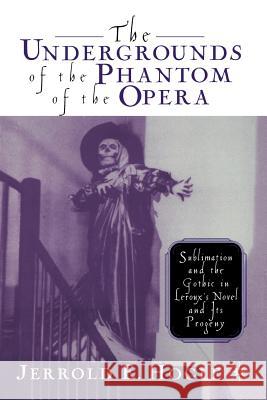The Undergrounds of the Phantom of the Opera: Sublimation and the Gothic in Leroux's Novel and Its Progeny » książka
topmenu
The Undergrounds of the Phantom of the Opera: Sublimation and the Gothic in Leroux's Novel and Its Progeny
ISBN-13: 9781349634101 / Angielski / Miękka / 2002 / 262 str.
The Undergrounds of the Phantom of the Opera: Sublimation and the Gothic in Leroux's Novel and Its Progeny
ISBN-13: 9781349634101 / Angielski / Miękka / 2002 / 262 str.
cena 403,47
(netto: 384,26 VAT: 5%)
Najniższa cena z 30 dni: 385,52
(netto: 384,26 VAT: 5%)
Najniższa cena z 30 dni: 385,52
Termin realizacji zamówienia:
ok. 22 dni roboczych.
ok. 22 dni roboczych.
Darmowa dostawa!
Kategorie:
Kategorie BISAC:
Wydawca:
Palgrave MacMillan
Język:
Angielski
ISBN-13:
9781349634101
Rok wydania:
2002
Wydanie:
2002
Ilość stron:
262
Waga:
0.40 kg
Wymiary:
23.39 x 15.6 x 1.5
Oprawa:
Miękka
Wolumenów:
01
Dodatkowe informacje:
Wydanie ilustrowane











